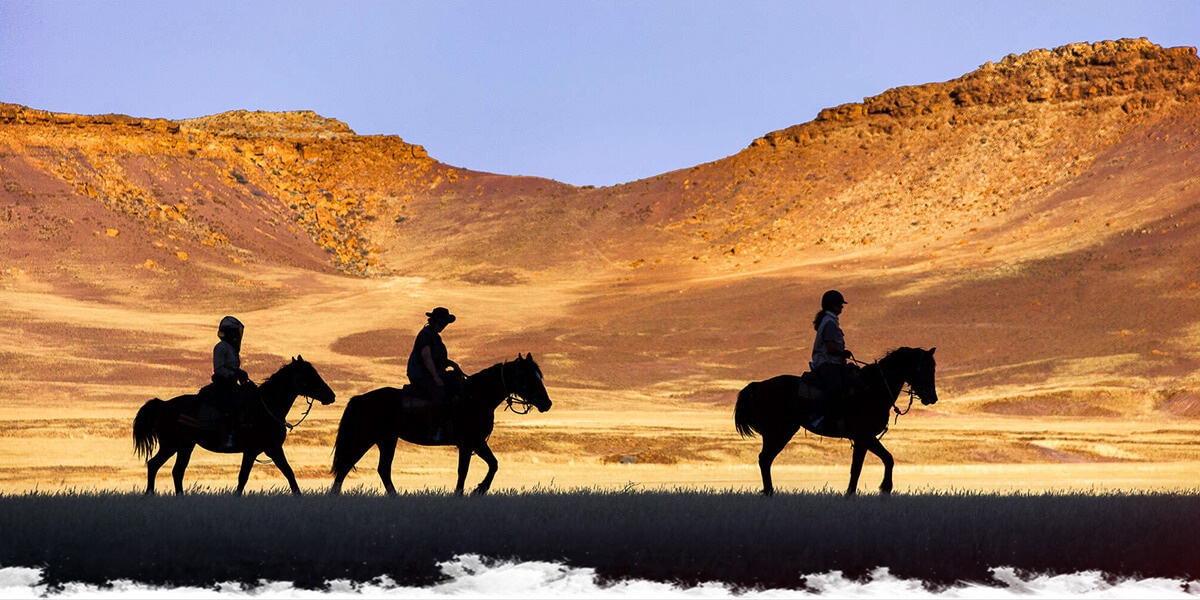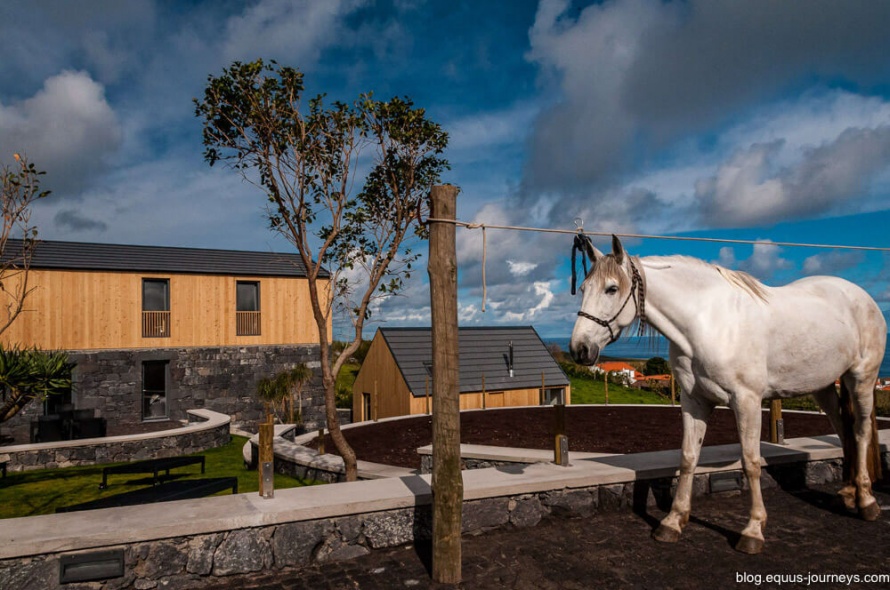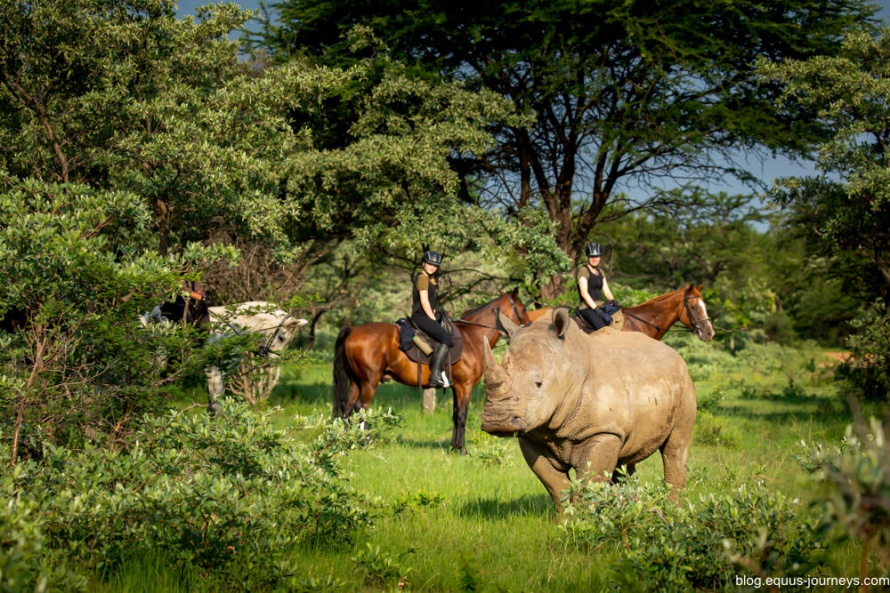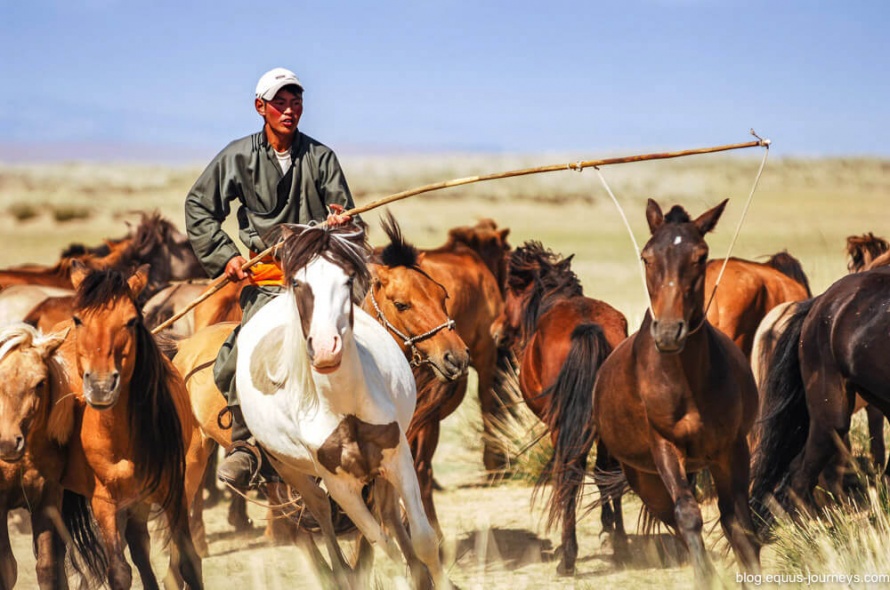
Sustainable tourism and horseback travel
"Sustainability"... The Goliath of the tourism industry? How
do we combine international travel with the need for more environmental
awareness? There are so many different ideas behind the very concept of
sustainable travel. Spoiler alert: it's a little more complex than just
avoiding long, carbon-heavy international flights. Here at Equus, this is
something that is very important to us, and we thought that it was high time we brought the matter to a head.
According to the International Ecotourism Society, “ecotourism” is defined
as "Responsible travel to natural areas that conserves the environment,
sustains the well-being of the local people, and involves interpretation and
education". To put it simply, it’s about visitors creating a positive impact
on the local community and the environment. How exciting is it to know you will
be travelling (on horseback, but not only!) while at the same time making a
positive change? "A better way to travel", undoubtedly.
At the end of 2020, I attended a workshop on sustainable tourism and
responsible travel practices, with a view to make Equus Journeys a more sustainable
travel company. We all need to be mindful of how we travel. We all need to do
better and we are working to make
every trip booked with Equus Journeys as carbon-neutral as possible and be more committed to responsible practices. This also includes our own carbon emissions in
the office and during our own recce/fam trips. But more on that later…
In the meantime I thought I'd list several sustainable travel practices
that you, as an Equus Journeys guest, can implement in order to do your bit. I
really do hope you will keep these in mind for your next riding holiday,
wherever your next adventure takes you! NB - it can also apply to your
non-riding holidays...
10 good practices for a
sustainable riding holiday:
1 - Think about your transportation options
Admittedly, one way of reducing your carbon footprint is to choose a more local destination. Trains, buses, or even
car trips (preferably car pooling) are more eco-friendly than flights. But
you shouldn't necessarily forget about your dream African horse safari or
long-awaited horseback holiday to South America. If you want to be mindful of
your carbon emissions, here are some ideas:
- Choose direct flights over flights with multiple layovers.
- Look for airlines that use renewable biofuels such as Lufthansa, KLM, Scandinavian airlines, Virgin Atlantic, or British airways.
- You can also pay a little extra to help fund carbon offset programmes. Many IATA (International Air Transport Association) member airlines nowadays offer the possibility to add this to your ticket and have introduced travel offset programmes to help fund carbon-offsetting schemes, such as reforestation initiatives.
2 - Travel light
I know, easier said than done! But you'd be surprised by how the weight of
your luggage can impact your carbon footprint. So try to keep your luggage as
light as possible, plan to reuse and ask us if your holiday offers a laundry service!
3 - Mind your waste
At home and overseas, I can't emphasise how important it is that you make
sure you dispose of your waste the proper way. Recycle, bring your
own toiletries (small soap bars and bottles - keep weight in mind!), and don't
necessarily print everything out. If you travel to a country where there are no or limited recycling facilities, you
should consider bringing some of your trash home (batteries, bulbs) to be
recycled properly.
4 - Support the local economies, but be mindful of your actions.
By going on a riding holiday with us, you are helping support a team
of locals - our guides are almost always born and raised in the country
you'll be riding, and they rely on a string of local actors to build their
trips (accommodation, transfers, additional activities...). However, it's
also easy to tip the balance and you should be careful not to give money when it's not going to be used responsibly. "Give, but give
responsibly" should be your motto when travelling, and especially in
poorer countries. This is a tricky one, but we should be careful not to
encourage the culture of begging or dependency by giving away presents or money
to children without thinking of the consequences. In many countries, this can
very sadly lead to children being pulled from their schools by their families
to engage in the far more lucrative business of begging.

5 - Choose a destination that values sustainability
Have you ever thought about your destination's commitment to
sustainability? The Environmental Performance Index is a good resource to see
how well countries are doing in terms of environmental performance. Many
European countries are at the top of the list, including some of our top riding holiday destinations: France, Finland,
the UK, Norway, Australia, or Spain are all in the top 15.
6 - Be mindful of how you use natural resources
Again, this is something you should already do at home - turn off the
lights, don't overuse the AC, and prefer short showers over long baths! But you
should be even more aware of this when visiting countries where resources
are scarce (ie: really, please don't be tempted by unnecessarily long
showers in Namibia, where water is such a precious resource). Another easy tip:
if you're going on a camping trip, prefer biodegradable shampoos, soaps
and detergents. Those will not generate any unnecessary pollution to the environment if you
need to bathe in rivers, lakes, or basically anywhere that has not been touched
by the magic of modern plumbing!
7 - Avoid single use plastic.
As a travel agency, we strongly encourage our local teams and partners to come up with plastic-free alternatives to picnic plates and cups, water
bottles, etc. But you can also contribute at your own level with very simple
actions: you can bring your own reusable water bottle, for instance. If you're
going on a camping trip you can also bring your own camping utensils (knife and fork, etc.). Earlier on, I wrote about flying responsibly. Make sure to bring your own
travel cup, earphones and sleeping mask, and turn down your airline
complimentary ones. Just imagine how much plastic could be saved if we all just
said "no, thank you"...
8 - Respect the wildlife and protected areas.
A very simple rule, granted, but I've seen it broken many times. Do not buy
wildlife products and don't buy photos from anyone exploiting wildlife. Don't
bring keepsakes taken from protected areas. In many countries, such as
Mozambique, it is actually a criminal offence to bring back something as simple
as a little bit of sand or seashells.

9 - Learn about local traditions and culture.
Sustainable travel is not just about being eco-friendly, it's also about
respecting and supporting the locals. Behave appropriately, learn a few words
of the language, and respect local traditions, even if they might differ from
what you know at home. Don't be that person who wants to ride in India but
complains about the lack of beef burgers!This brings up the subject of animal welfare, and especially horses in our
case. We take every care to ensure that horses on our trips are treated
respectfully by their owners. However, in many countries, horses are business
partners rather than pets. Horses in Mongolia are not handled the same way we handle our own horses in western countries. You should take no offence in this, but rather go into your
holiday with an open mind and ready to accept cultural differences.
10 - It starts at home
All of this is all fine and well but really, it's all very pointless
unless you also apply them to your daily life!

Sustainable travel doesn’t have to be a challenge, but it can become
something we can all aspire to. Feel free to share your own sustainable
practices in the comments!
More information
Browse our holidays on the website: www.equus-journeys.com
You can contact us directly at info@equus-journeys.com or give us a call on +44 (0)1905 388 977
